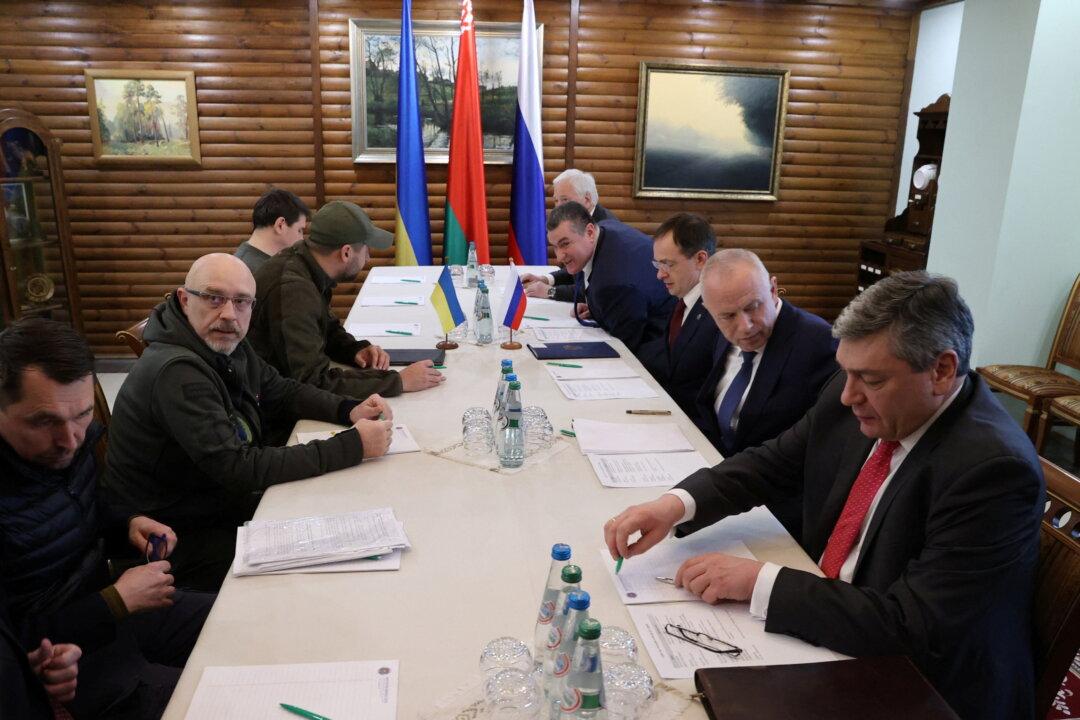Russian and Ukrainian negotiators said on March 13 that there has been progress in talks to potentially end the more than two-week-long conflict between the two countries, with results coming in days.
“To clarify. At the negotiations, the [Russian Federation]” isn’t making “ultimatums” but is instead “carefully” listening to Ukraine’s proposals, Mykhailo Podolyak, an adviser to Ukrainian President Volodymyr Zelensky, wrote on Twitter.





